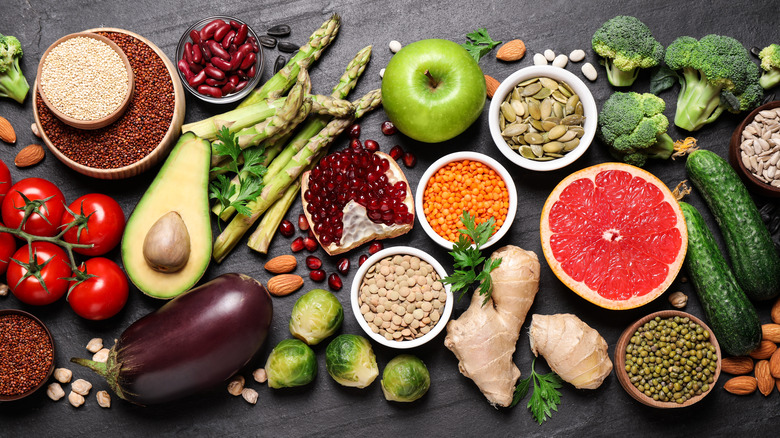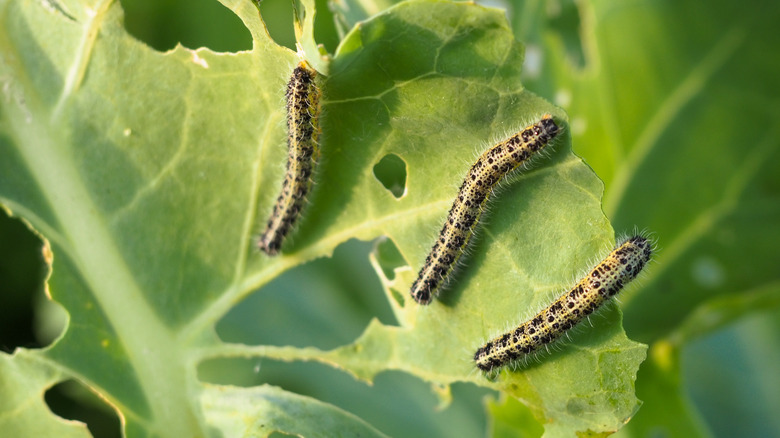The Reason California Bans Many Out-Of-State Fruits And Vegetables
If you like to start your day with an avocado toast and a coffee with almond milk, then you might already know how important the state of California is to your breakfast routine — the Golden State produces more than 90% of all avocados and 100% of all almonds grown in the United States. And while avocados and almonds may be two of the more popular products from California, they pale in comparison to the overall size of California's agricultural market.
Blessed with a Mediterranean climate (found in just five areas around the world) that is ideal for growing a wide range of crops (via FarmTogether), California grows more than 400 different commodities, including more than two-thirds of the fruits and nuts and one-third of the vegetables for the entire country, according the California Department of Food and Agriculture. Chances are, if you have any fruits or vegetables in your home, at least some of that was grown in California. Agriculture is a huge business in California, to a tune of nearly $55 billion in sales in 2020, or 12.5% of the country's total, reports the USDA. It's no wonder then that California has safeguards in place to protect its massive agricultural industry.
Out-of-state fruits and vegetables can bring pests and disease
If you've ever driven into California from another state, then you may have been asked at an agricultural checkpoint if you're bringing in any fruits or vegetables. The concern is that those fresh fruits and vegetables may include some unwelcomed hitchhikers in the form of microorganisms that can cause disease and pests, like fruit flies, which can be incredibly destructive to produce, explains the USDA. Given the size of California's agricultural market, the potential harm is not insignificant.
Nor are all out-of-state fruits and vegetables banned. The California Department of Food & Agriculture lists more than 30 popular fruits and vegetables out of more than 80 that are admissible from all states, subject to inspection, including bananas, carrots, celery, cucumbers, lettuce, and tomatoes. At the other end of the spectrum are items like citrus fruits (which are particularly vulnerable to diseases) and walnuts, which are restricted from all states. Other items are only restricted from certain states and regions, such as apples, apricots, and blueberries from parts of Utah and the eastern poption of the country. As for avocados? They are only restricted from Puerto Rico and parts of Florida and Texas.

